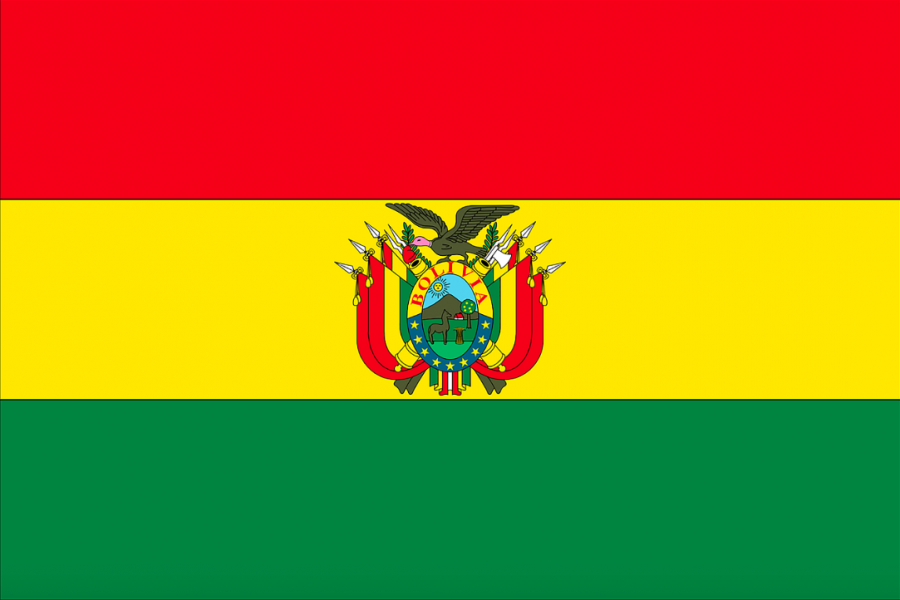Bolivia and the Ousting of Evo Morales
December 9, 2019
In 2006, Bolivia elected its first indigenous president, Evo Morales. Many around the world rejoiced, embracing the news as a positive step towards the development of democracy in Bolivia. But this was all but true. Since his election, the socialist president has placed more and more power into his hands, denouncing the political opposition and, in turn, pushing the country drastically to the left.
For the past 13 years, Morales has held the vast majority of the authority in Bolivia, and the happenings in Bolivia since 2006 and recently show exactly that. In 2016, when Morales started to come up against the two-term limit, listed in the Bolivian Constitution that he had heavily supported in 2009, he tried to legally request for his staying in office indefinitely. When a majority of the Bolivian congress turned it down, Morales resorted to pulling strings in independent institutions to get his way, and was able to run for a third unconstitutional term in 2014, and his 4th most recently in 2019. According to Bolivian law, Morales needed either to win by a majority vote or lead the next popular candidate by at least 10 percent to win the most recent election. With the real-time vote-counting in process, it was becoming clear that Morales would fall short of this goal. That’s when the vote counting froze, and no updates were posted for the next 24 hours. When the official results were posted, people were in outrage. Morales had supposedly won 47.1 percent to his rival’s 35.5 percent of the vote, “winning” the election.
On November 6th, the opposition, headed by runner-up Carlos Mesa, published a 190-page-long report containing accusations of fraud, data wiping, and a threat to send this situation to international organizations such as the OAS and the United Nations. Morales denied the allegations of election fraud and welcomed any foreign governments to audit the electoral processes, promising to hold another election if any proof of tampering were to be found. The strong circumstantial evidence of tampering succeeded in bringing many Bolivians to protest. From October 21st to the present-day, Bolivians made it clear that this was the last straw. Millions have gone out to protest for fair elections. Many parts of Bolivia’s police and military sided with the protesters and defended them from the threats and beatings by pro-government gangs. On November 10th, a professional observer from the Organization of American States published his audit of the election, announcing that there had been “clear manipulations” of the vote. Morales, backed into a corner, agreed for a new vote to be taken. At this point, protests in the streets had been taken to a new level and had resorted to violence. Buildings were burned down, and thus people were arming themselves in the streets, leading Bolivia into disorganized chaos.
On that same day, the police escorted a couple of men taking the request for Morales’s resignation. The commander of Bolivia’s armed forces, Gen. Williams Kaliman, said the military chiefs believed Morales should step down to restore “peace and stability and for the good of our Bolivia.” All of this surmounted to president Morales and vice president Álvaro Linera’s eventual resignation on November 10th broadcasted live in all the world. Since then, Bolivia’s body of government has been without an official president at its head.
Predictably, Morales, along with his left-wing allies- Venezuela’s dictator Maduro, President-elect Alberto Fernández of Argentina, and President Miguel Díaz-Canel of Cuba- cried “coup” in response to the requested resignation by the military commander of Bolivia.
Many across the world agree with this, especially in the US. According to Señora Morás, Spanish teacher, commented: “It was a coup because the resignation happened under the implied threat of the head military leader. The role of the military is never to put or remove democratically elected leaders. If the elections needed to be repeated, there is a constitutional process to follow and do the elections again.” Weldin Dunn ‘20 believes that “many believe it is a coup, and by definition it is a coup because of military involvement.” What eventually led to Morales’s downfall wasn’t the military intervening in political affairs, no they spoke out long after protests began, but rather the installing of many leftist ideologies in the Bolivian government. Morales stuck left-wing allies anywhere he could, and governmental corruption soon became very prevalent, eventually allowing Morales to do things unconstitutional, such as running for his 3rd and 4th term. Even with the introduction of these questionable affairs, Morás’s opinion stood. Morales had some positive effects on the Bolivian economy, which is why many immediately side with him not knowing the full story, but his exit from the political scene in Bolivia, for the time being, is the start of something not seen for a while in Bolivia. Not many know about the situation, however, and according to Weldin Dunn’20 “It is something not very well known that I myself am not very informed about.” As implied in the term, countries in transitional phases, sustain the most change. Therefore, staying updated on the topic is highly recommended for all those interested in the topic in its depth.































